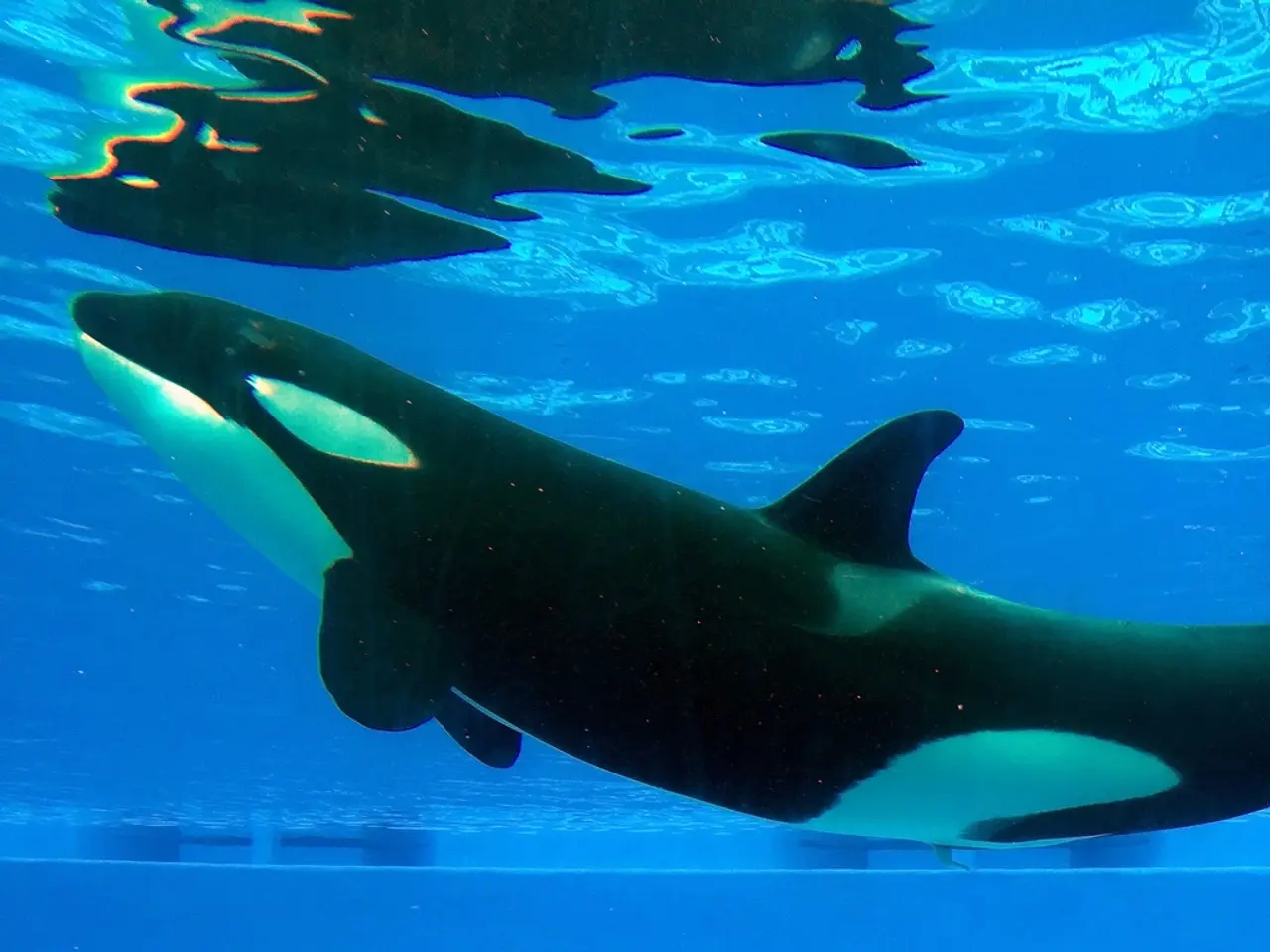Oceanic urine from whales is a valuable resource
In a groundbreaking study published in Nature Communications on March 10, researchers have highlighted the significant contribution baleen whales make to their ocean ecosystems. The focus of the study was on three species: gray, humpback, and right whales, which primarily feed on plankton, krill, and small fish.
These whales, particularly those that migrate from nutrient-rich waters off the coasts of Alaska or Iceland to nutrient-poor waters like Hawaii or the Caribbean for breeding, play a crucial role in the ocean's nutrient cycle.
The researchers estimated that these three types of whales bring nearly 4,000 metric tons of nitrogen per year to their breeding grounds around Hawaii. This is equivalent to more than 2 million large bags of garden fertilizer, shedding light on the surprising amount of nitrogen whales move in their urine during the breeding season.
To determine the number of whales and their travel patterns, the researchers looked up historic accounts and data on whale sightings. They also used data on elephant seals, another marine mammal that fasts before breeding, to gauge the amount of nitrogen whales shed in their pee.
The study found that whale pee is the largest source of nitrogen in their breeding waters. During their migration and breeding season, whales do not eat or poop, but they discard extra water and nutrients in their pee.
The extra nitrogen from whale urine feeds phytoplankton at the base of the ocean food chain. Phytoplankton, in turn, absorbs carbon dioxide, a greenhouse gas, as they grow. This process helps in reducing the carbon footprint of the oceans.
Humpback whales transport the largest amounts of nitrogen annually to their birth waters near Hawaii. The new research underscores the benefits of rebuilding populations of whales and other large species, as the nutrients from whale poop and urine, along with the placentas of newly born whales and the bodies of dead whales, enrich the ecosystem.
In conclusion, this study provides further evidence of the value of large animals within their ecosystems. The remarkable role of baleen whales in the ocean's nutrient cycle underscores the importance of conservation efforts to protect these majestic creatures and maintain a healthy marine environment.
Read also:
- Peptide YY (PYY): Exploring its Role in Appetite Suppression, Intestinal Health, and Cognitive Links
- Toddler Health: Rotavirus Signs, Origins, and Potential Complications
- Digestive issues and heart discomfort: Root causes and associated health conditions
- House Infernos: Deadly Hazards Surpassing the Flames








